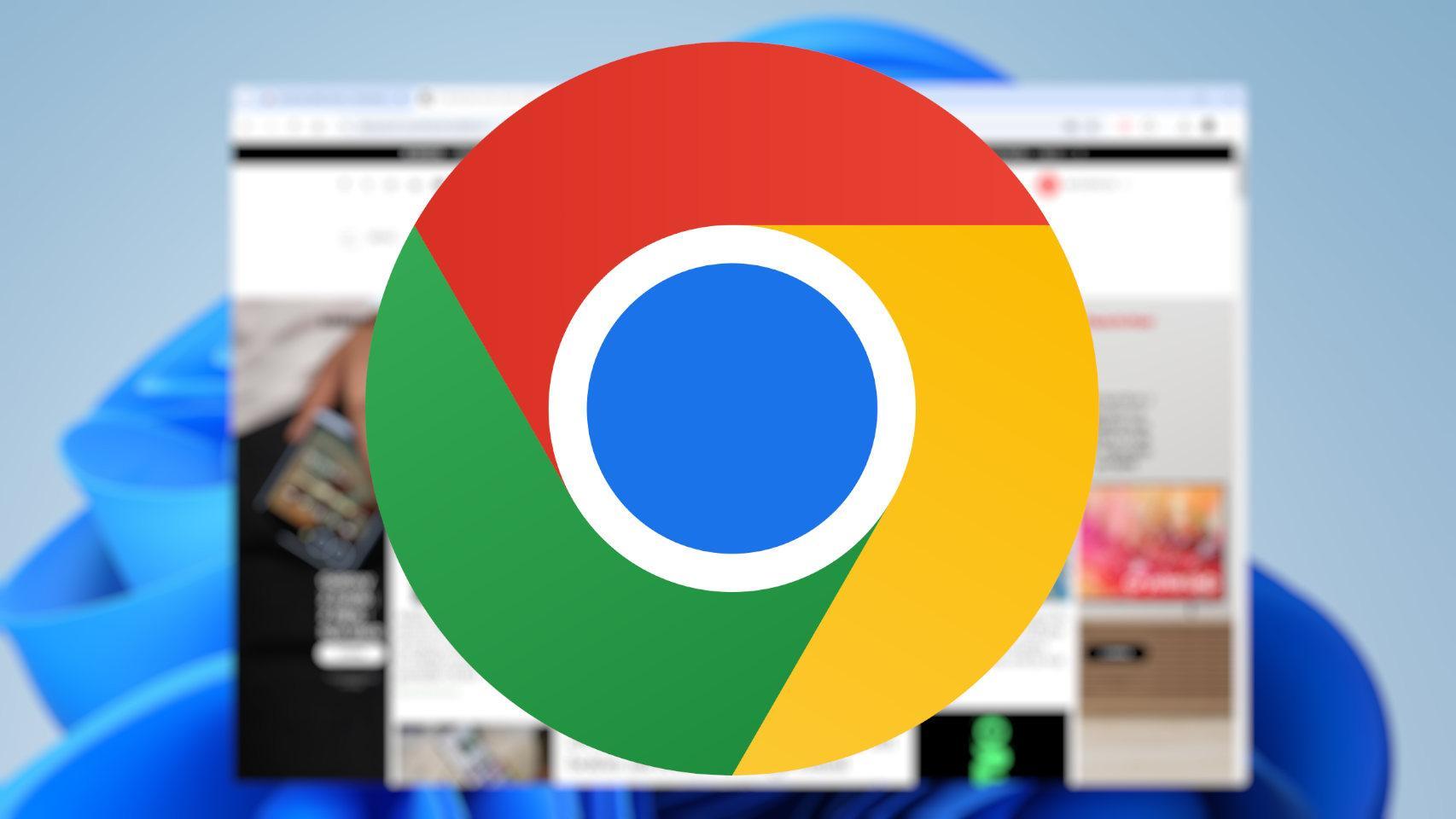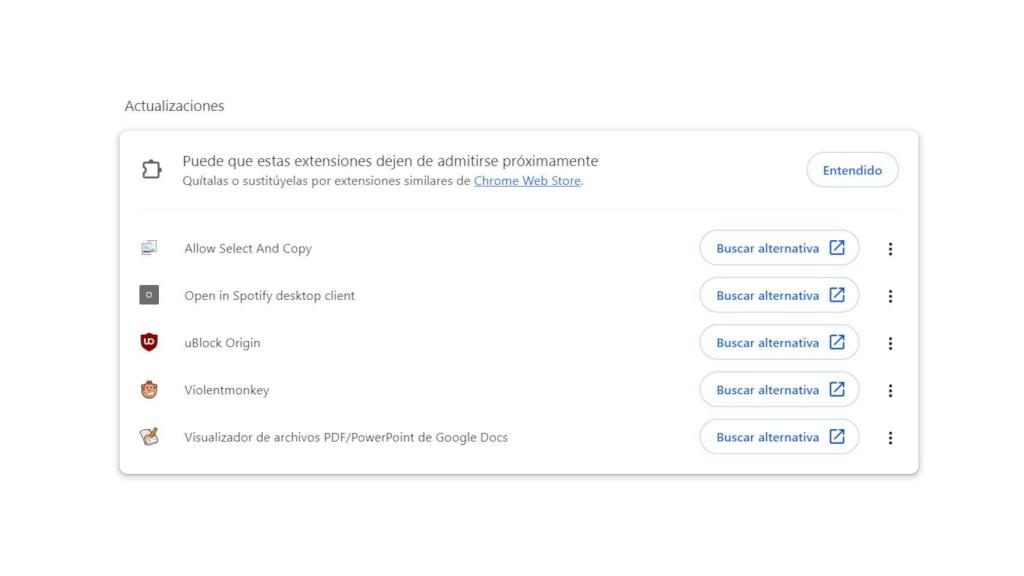Google starts deleting them and there is no going back

Finally, Google made good on its threat. Last year, the internet giant announced sweeping changes to its Chrome browser that meant some of its most downloaded extensions would no longer work. Despite criticism from users and extension developers, there is no going back and the company has begun to enforce the new rules with an iron fist, no matter who falls.
Users are already noticing the effect of the new rules; When you open Chrome, the browser displays a pop-up warning you that some of its extensions are disabled automatically. This process is gradual and will gradually be activated for all users; Those who can still use the extensions will see a message in Settings warning them that they are “soon to be discontinued” and they should look for alternatives.
Finally, the developers of the affected extensions have confirmed that They are already being removed from the Chrome Web Store.Chrome extension store, which means it will soon be impossible to install them. Thus, one of the most controversial changes announced by Google is complete with the end of third-party cookies; But unlike that case, this time Google decided to move forward, despite a lot of criticism and the risk of losing market share to other browsers.
After more than 15 years, it’s time to change your browser. I just want Chrome, but without Google’s nefarious behavior.
Which Chrome-based browser would you recommend for macOS? pic.twitter.com/jvyrvCUfCo
— Christophe Nakazawa (@cpojer) October 14, 2024
To understand the reason for these changes, we must explain that all major browser extensions use an API, a set of instructions that allows them to run in the browser and make changes to the web page and program interface. Until now, Chrome has used Manifest V2, as have Firefox and other competitors; but a few years ago Google introduced Manifest V3; new version which includes important security improvements which do not allow extensions to obtain our personal data, launch viruses in the browser and negatively affect the work.
With the adoption of Manifest V3, Chrome now limits the scope of extensions and what they can do much more; therefore, a malicious Chrome extension is less likely to cause any harm. However, these changes have a side victim: the most powerful extensions, which require access to the browser and page to work. We’re talking about extensions like ad blockers, tracker blockers, privacy protection toolsand extensions that allow the user to run their own code to modify the page.
No one can escape this Google will benefit greatly from this change which you have imposed on Chrome. The company has achieved success thanks to the large amount of data it receives from users, which allows it to offer highly personalized and engaging advertising. With a 65.74% share of the web browser market, Chrome will suddenly allow Google and other advertisers to get more data than ever from the browsers of billions of internet users who will now be less protected from these tracking methods, according to Statcounter.

Chrome now disables unsupported extensions and recommends alternatives
Free Android
It should be noted that Google has been working with the developer community in recent months to mitigate the impact on users; For example, when you disable our extensions, Chrome will recommend similar ones and they are still available. And yes, he also recommends ad blockers, although less powerful than the ones he removed. The company has also eased some of the tougher restrictions it initially imposed.
However, all this was not enough for the most popular extensions to be saved. Some developers have released “Lite” versions of your extensionsmore limited in capabilities, but with the same functionality; but many others will allow their extension to be removed, either because it is technically impossible to create a “lite” version, or in protest of the changes.

The user now has two options. You can find “lite” versions of your favorite extensions, if they exist, and try using them; For many people this may be more than enough; but there are already dissatisfied users who chose the second option: switch to another browser which remains compatible with your favorite extensions. Firefox, for example, has already announced that it will retain support for Manifest V2 extensions, and with a share of just 2.71%, its best hope is that Google will deal itself a blow with this decision.
